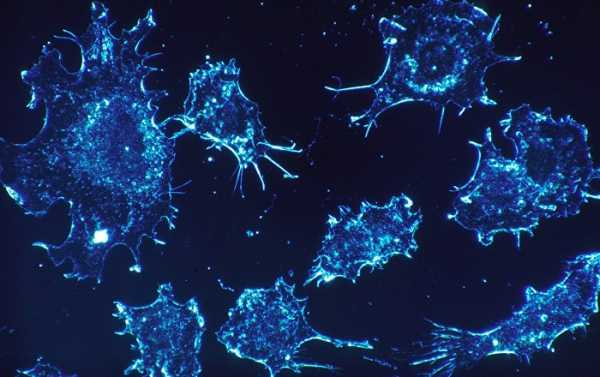
The development of technology utilizing artificial intelligence (AI) in healthcare could lead to major breakthroughs in the global battle against prevalent deadly diseases, such as cancer, by aiding early diagnosis and more effective treatment methods.
UK Prime Minister Theresa May will announce plans later today to invest millions of pounds into the research and development of artificial intelligence to potentially allow doctors to diagnose patients with cancer and other chronic diseases early on, the Guardian newspaper reported on Sunday.
“Late diagnosis of otherwise treatable illnesses is one of the biggest causes of avoidable deaths. The development of smart technologies to analyze great quantities of data quickly and with a higher degree of accuracy than is possible by human beings, opens up a whole new field of medical research and gives us a new weapon in our armory in the fight against disease,” UK PM Theresa May wrote in a speech that she will read today during a visit to Mansfield.
“Achieving this mission will not only save thousands of lives. It will incubate a whole new industry around AI-in-healthcare, creating high-skilled science jobs across the country, drawing on existing centers of excellence in places like Edinburgh, Oxford and Leeds – and helping to grow new ones,” the British PM will add.
Early diagnosis will give patients a significantly better chance of fighting off and surviving illnesses, and therefore, the successful development and use of AI in healthcare could considerably cut the number of deaths resulting from chronic diseases.
PM May wants researchers to work in conjunction with the NHS to develop algorithms that can use patient-specific data to notify GPs when a patient should be referred to a relevant specialist, in line with the government’s goal of early diagnosis.
In excess of 50,000 people will be diagnosed at the early stages of ovarian, prostate, bowel or lung cancer each year, according to government estimates.
Although the initiative is an encouraging and bold step in the fight against cancer, it has raised ethical questions, with private-sector businesses being granted access to the NHS data for commercial activities.
Despite the controversy surrounding the sharing of confidential information with the private sector, Sir Hapal Kumar, the chief executive of Cancer Research UK, expressed his support for the project to the Guardian, and said it could save 22,000 lives from cancer each year by 2033.
“If this infrastructure enabled us to reduce late diagnosis by half in the next 15 years, then for just four types of cancers – lung, bowel, prostate and ovary – 22,000 fewer people each year would die within five years of their diagnosis. Our goal is that three in four people will survive their cancer by 2034 and we support efforts that will help us achieve this ambition,” Cancer Research UK Chief Executive Sir Hapal Kumar said on May 20.
Sourse: sputniknews.com






